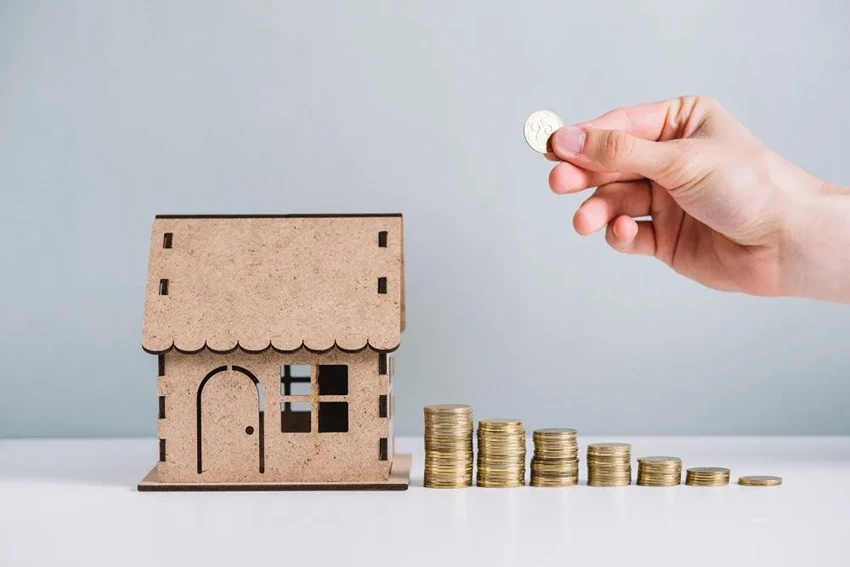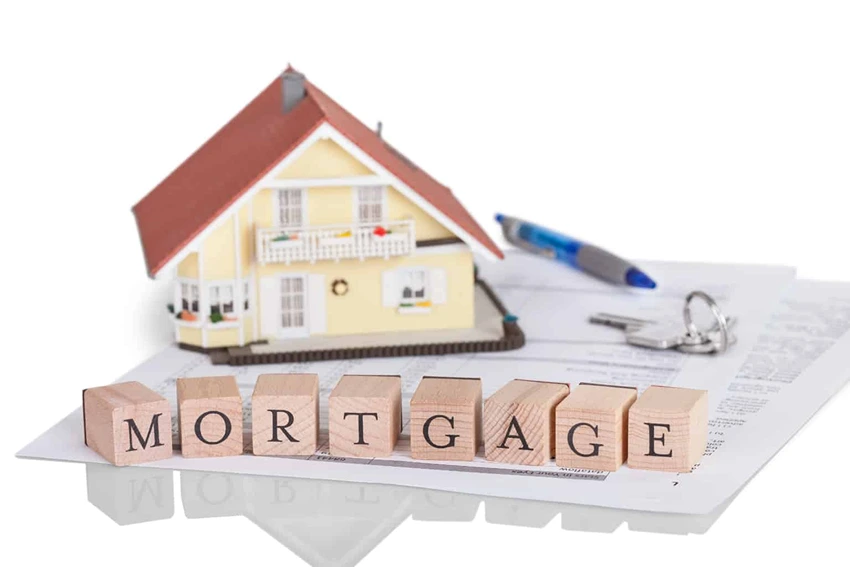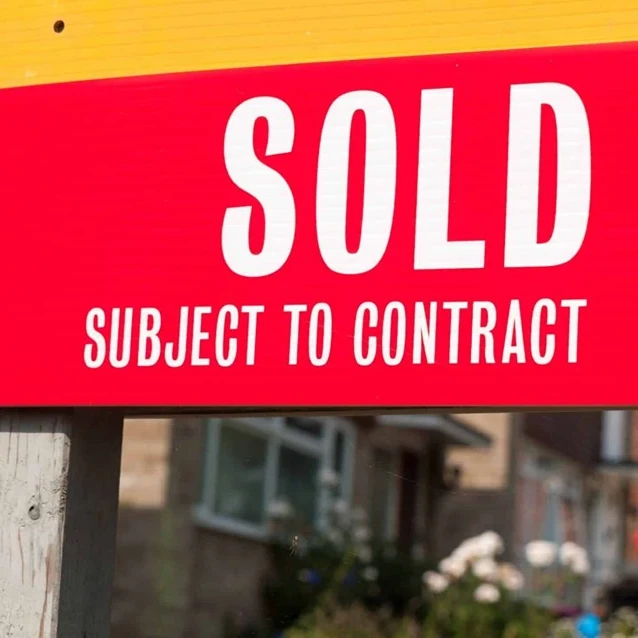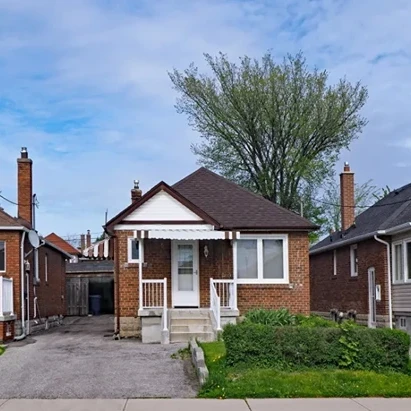Are you grappling with the possibility of selling a property that’s shackled by a mortgage? Unravelling the logistics and legal requisites of dispensing your mortgaged home in the UK can be an intricate dance, yet with the right beats, you could effortlessly sway through the process. Let’s dissect the reality of selling property under mortgage, spotlighting key legal requirements in Scotland to ensure you stay en pointe throughout your sale.

Can I Sell My House If I Still Have a Mortgage in the UK?
Are you wondering whether you can indeed sell your house if there’s still a mortgage attached to it? The straightforward answer is yes, you can sell a house with a mortgage in the UK. However, the process involves a few more steps compared to selling a property that is mortgage-free.
Understanding the logistics of selling a mortgaged property
When selling property under mortgage, the first thing you need to address is how much you owe. Contact your mortgage lender to request a redemption statement, which will inform you of the exact amount required to pay off your current mortgage, including any exit fees if applicable.
It’s crucial to understand that the sale price of your property must be higher than the outstanding mortgage amount for you to pay off the loan. If this is not the case, you may need to cover the deficit from your savings or negotiate with the lender.
You’ll then proceed with the usual steps of selling a house, such as valuing the property and engaging the services of an estate agent. For information tailored to your specific circumstances, consider checking out resources like Chancellors that dive into the nuances of a UK mortgage property sale.
Identifying key legal requirements in Scotland
Scotland has its own legal system, and thus the legal requirements for selling mortgaged property can differ from the rest of the UK. It is beneficial to consult with a solicitor early on to help guide you through the intricacies of Scots law when it comes to property transactions. They can assist in drafting the necessary documents and ensure all legal obligations are met, such as the discharge of the standard security – Scotland’s legal term for a mortgage.
In most sales involving a mortgage, the solicitor will arrange for the sale proceeds to be used to pay off the outstanding loan directly to the lender. Any surplus funds will then be released to you. Remember, getting expert advice is crucial because failing to adhere to the legalities can result in delays or complications in your property sale.
Selling a property with an outstanding mortgage in Scotland is certainly doable, and understanding the process will ensure you’re well-prepared. Stay informed, seek sound legal counsel, and be proactive in managing the sale to keep it as smooth and stress-free as possible.
What Happens to My Mortgage When I Sell My House?
Can you sell a house while it still has a mortgage? Yes, it is possible, and the process is called mortgage redemption. When you decide to sell your home, the mortgage redemption process is initiated. Here’s what you need to understand about this crucial step:
How the Mortgage Redemption Process Works When Selling
When you sell a house, the outstanding mortgage on the property must be paid off. This is a key part of the process often referred to as ‘mortgage redemption’. The steps are as follows:
- Inform your lender: Notify your mortgage lender of your intention to sell. They will provide you with a ‘redemption figure’, which indicates how much you need to pay to settle your mortgage.
- Sale completion: Once your property is sold, your solicitor will use the proceeds to pay off the mortgage.
- Surplus funds: Any remaining funds after the mortgage has been settled are yours. Keep in mind that if the sale does not cover the mortgage fully, you’re responsible for making up the difference.
Find complete guidance and support on making your property sale as simple as possible on websites such as Sold.co.uk.
The Role of Estate Agents During the Mortgage Property Sale
Estate agents play a critical role when you’re selling a property with a mortgage. Their responsibilities include:
- Valuation: Providing a realistic valuation to ensure your property sells for a sufficient amount to cover the mortgage.
- Marketing: Effectively marketing your property to find a suitable buyer quickly. Understanding how many viewings to sell a house can also play a crucial role in the speed of your sale. Typically, the more viewings your property has, the higher the chances of securing a buyer. By ensuring your home is well-presented and priced correctly, you can attract more potential buyers and expedite the sale process.
- Negotiation: Assisting in negotiations to achieve the best sale price which contributes towards a successful mortgage redemption. Additionally, understanding the various closing costs involved in the transaction is crucial. These costs can include legal fees, agent commissions, and other expenses that need to be settled before the sale is finalized. Being aware of these costs upfront can help you budget more effectively and avoid any last-minute surprises.
Understanding the steps and enlisting the help of professionals such as estate agents are crucial for a smooth transaction. This ensures that you handle all legal and financial obligations thoroughly, paving the way for a successful property sale.

How Do I Manage the Sale Finances and Equity When Selling My Property?
When you sell a property with an outstanding mortgage, a crucial part of the process is managing your sale finances and figuring out your equity. Are you wondering how to tackle this? Let’s break it down step-by-step.
- Strategies to manage and calculate equity during the sale
Calculating your equity is straightforward. If you are an entrepreneur, you might even consider the option to sell to your own company. This strategy can offer unique financial advantages, such as retaining control over the property while potentially benefiting from tax efficiencies. It’s essential to consult with a financial advisor to understand the full implications and ensure it aligns with your overall financial goals.
- Start by determining the property’s current market value—is it more or less than when you bought it?
- Then, subtract the outstanding mortgage balance from this value.
The remaining amount is your equity. This figure is significant because it influences how you’ll manage your sale finances.
For a more detailed breakdown, consider using online tools provided by financial services like Purplebricks. Their mortgage calculators can help you estimate your equity taking into account any changes in the market and your regular mortgage payments.
- Seeking financial advice specific to the property sale
Managing sale finances can be complex, particularly when dealing with mortgage payoffs during house sale or reinvesting your equity. It might be tempting to handle it all on your own, but seeking professional financial advice can be invaluable. Here’s why:
- Clarity on Financial Implications: A financial advisor can explain the consequences of your mortgage payoff, taxes you might owe, and any penalties for early repayment.
- Tailored Financial Strategies: They can provide tailored strategies to maximise your financial gains from the sale and guide you on reinvesting your equity or using it towards purchasing a new property.
- Sale Proceeds Management: An advisor can also guide you on managing the proceeds from the sale to ensure they are allocated correctly—first to settle any outstanding mortgage and then to distribute any remaining equity to you.
Remember, when it comes to financial matters, especially those as significant as selling your property, it’s okay to ask for help. The goal is to ensure you emerge from the sale financially healthy and ready for your next step, be it another property investment or something else entirely. Tailor-made financial advice can be the compass that guides you through this critical journey.
What Are the Implications of Porting My Mortgage or Paying It Off Early in Scotland?
When considering selling your property in Scotland, you might be weighing up the options of porting your mortgage or paying it off early. But what do these choices mean for you?
Let’s delve into the specifics.
Understanding porting options and their benefits
Porting a mortgage means transferring your existing mortgage to a new property. But is porting a mortgage in the UK a straightforward process? Yes, it can be, provided your lender approves and the new property meets their criteria. The benefits of porting include potentially avoiding early repayment charges and retaining your current mortgage rate.
However, if you’re moving to a more expensive property, you might need to borrow additional funds at a possibly higher rate. Conversely, if the new property is cheaper, you might face repayment charges on the part you’re not porting. It’s crucial to discuss porting with your lender, as terms and rates can change, and not all mortgages are portable.
The financial implications of early mortgage repayment
Are you pondering the costs associated with early mortgage repayment? It’s possible there will be early mortgage repayment charges to consider. These fees compensate the lender for the interest they’ll lose if you repay the mortgage sooner than the agreed term. Such charges can be a percentage of the loan and vary depending on how much of the mortgage term is left.
But why would you repay early? Maybe you’re selling because you’ve come into some money or the pace of the property market in Scotland necessitates a quick move. If you decide to repay your mortgage before the end of the term, get in touch with your lender to request your mortgage redemption statement. This document outlines exactly what you owe, including any early repayment charges. Understanding the implications of these financial moves upfront can help you navigate the process of selling your mortgaged property with clarity and confidence.
What Should I Consider Before Selling a House With a Mortgage?
When you’re preparing to sell a house with an outstanding mortgage, there are key factors you must consider to ensure the process is smooth and successful. It’s essential to have a clear plan for managing your preparation and understanding the financial implications involved.
Essential preparations for a house sale with an outstanding mortgage
- Obtain an up-to-date mortgage statement to know the outstanding balance.
- Reach out to your mortgage lender to inform them of your intention to sell and discuss any early repayment charges.
- Consider booking a property valuation to determine your home’s current market value and understand how it compares with your mortgage balance. Book your free property valuation to get started.
- Make sure your property is well-presented to attract potential buyers, which could involve minor repairs, decluttering, and staging.
Factoring in mortgage-related debt repayment post-sale
- Determine if you will have enough funds from the sale to pay off your mortgage balance.
- Understand that the sale proceeds will first go towards paying off the mortgage debt before you can access any excess funds.
- If the property’s sale price does not cover the mortgage balance, you must have a plan in place for covering the shortfall.
- Be aware of the implications of selling mortgaged property on your credit score and future borrowing capabilities.
Selling a house with a mortgage can definitely add layers of complexity to the property transaction, but by taking the right steps and knowing what’s ahead, you can navigate the process confidently. By grasping the financial nuances, like debt repayment from house sale and ensuring all your ducks are in a row from the beginning, you’ll be well-positioned for a seamless sale.
How Can I Navigate the Property Sale Chain and Transferring Mortgages in Scotland?
When you’re considering selling your home in Scotland, understanding the complexities of the property chain and mortgage considerations is crucial to a successful transaction. Have you ever wondered about the implications of your property’s place within the sale chain, and how your existing mortgage fits into the equation?
Understanding the property sale chain’s impact on your transaction
The property sale chain represents a line of buyers and sellers linked together because each transaction depends on another. If you’re part of a chain, your ability to sell your home can be affected by how smoothly other transactions in the chain proceed. Factors such as breaks in the chain or delays can have a knock-on effect, potentially disrupting your sale.
- Being at the bottom of the chain indicates you have no property to sell before buying another, making you an attractive buyer.
- Mid-chain means you are selling a property while buying another, and your move is dependent on both transactions.
- At the top of the chain, you’re selling without purchasing, usually the most straightforward position.
Tips on transferring your mortgage when selling
Transferring mortgages, or ‘porting’, is when you take your current mortgage deal to your new property. If you’re selling, you’ll need to decide whether to port your mortgage or pay it off and potentially take a new one on your next property.
- Review your mortgage terms to see if porting is an option for you.
- Consider any potential early repayment charges or exit fees that might influence your decision.
- Consult estate agents for guidance, as they often have mortgage advisors within their practice, or they might direct you to a trusted source for tailored mortgage advice.
Selling your property with a mortgage in Scotland is not only possible, but it’s also fairly common. With strategic planning, understanding the property sale chain, and smart mortgage considerations, you can navigate through the complexities with greater ease. Remember, every decision should be well-informed, and seeking professional advice is always a wise move to ensure that your property sale goes as smoothly as possible.

What Steps Should I Take to Ensure a Fast and Smooth Property Sale in Scotland?
Selling your house with a mortgage on it can be straightforward if you understand the process and take the correct steps. But have you ever wondered how long to sell a house? The timeline can vary based on market conditions, property location, and how well-prepared you are for the sale. By following the outlined steps and seeking professional advice, you can streamline the process and potentially reduce the time your property spends on the market. Here are those specific stages laid out for you:
- Review your mortgage agreement to understand any terms related to selling and any potential penalties.
- Contact your mortgage lender to notify them of your intent to sell and request your mortgage redemption figure.
- Engage a conveyancing solicitor to handle the legalities of the property sale and ensure a seamless transition.
A Step-by-Step Guide for Selling Your House with a Mortgage
Have you ever wondered what you need to do when it comes to a mortgage property sale? Here’s what to do for a quick property sales experience:
- Contact Your Mortgage Lender:
- Request a settlement figure.
- Understand any fees associated with the early repayment of the mortgage.
- Get a Valuation:
- Determine the market value of your property.
- Ensure that it covers your mortgage a and potential selling costs.
- Speak to a Conveyancing Specialist:
By clicking here, you can get in touch with a solicitor experienced in conveyancing for mortgage property sale. They’re essential in ensuring that all legal and financial aspects of the sale are managed correctly.
- List Your Property for Sale:
- Select a method of sale, whether through an estate agent or by yourself.
- Ensure your listing is attractive and reaches potential buyers fast.
- Accept an Offer:
- Once an offer is accepted, inform your solicitor. At this stage, you might encounter the term sold STC meaning ‘Sold Subject to Contract’. This indicates that an offer has been made and accepted, but the sale is not yet legally binding. Understanding this term and its implications can help you navigate the final stages of your property sale with confidence.
- Your solicitor will coordinate with the buyer’s solicitor to agree on the sale’s terms.
- Finalize the Sale:
- Sign and exchange contracts.
- Set a completion date when the sale is finalized and you must vacate the property.
The Importance of Conveyancing in Fast Property Transactions
Conveyancing is the legal transfer of property ownership, and it’s crucial for a swift property transaction. Why is it vital?
- Detects Legal Issues: It identifies any legal barriers that could delay or stop the sale.
- Handles Contracts: The conveyancing solicitor drafts and exchanges contracts to finalize the sale.
- Manages Funds: They will oversee the repayment of your remaining mortgage from the sale proceeds and transfer any surplus to your account.
Selling a house with a mortgage in Scotland requires careful planning, but by understanding the steps and the role of conveyancing, you can pave the way for a successful and prompt sale.
Can you sell a house with a mortgage easily?
Can you sell a house with a mortgage in the UK? Absolutely, you can. It’s a common scenario and one that requires a clear understanding of the process involved.
Understanding the logistics of selling a mortgaged property
When you’re selling property under a mortgage, the key point is ensuring that the sale covers the outstanding balance. If the property’s sale price is higher than what you owe on the mortgage, then you can settle the mortgage and keep the difference as equity. However, if the sale price is lower, you’ll need to cover the shortfall.
Here are the important steps to consider:
- Assess Your Equity: Calculate how much equity you have in your property. Equity is the difference between the property’s value and the mortgage balance due.
- Approach Your Lender: Contact your mortgage lender to get a redemption statement. This will tell you exactly how much you need to pay to clear your mortgage.
- Set the Sale Price: Work with an estate agent to set a realistic sale price that aims to cover the mortgage and related selling costs.
- Negotiate the Sale: Once you have a buyer, negotiate the sale price, and once agreed upon, the buyer’s payment will go to paying off the mortgage.
Identifying key legal requirements in Scotland
In Scotland, the legal process for selling mortgaged property involves some specific requirements. You’ll need a solicitor to manage the legal aspects of the sale, which include:
- Conveyancing: This is the legal transfer of the property from seller to buyer.
- Settlement of the Mortgage: Your solicitor will facilitate the repayment of the mortgage using the funds from the sale.
- Transfer of Title Deeds: Once the mortgage is paid, the title deeds are transferred to the buyer.
Selling a house with an ongoing mortgage clearly involves a few important steps, but with careful planning and the right support, you can definitely do it—and do it well. The path ahead calls for a factual and informed approach, ensuring you meet all legal requirements for a seamless transaction.
Conclusion
Navigating the process of selling your home in Scotland while it’s still under mortgage can indeed be intricate. Throughout this post, we’ve delved into the critical aspects, from understanding the legalities and the mortgage redemption process to handling your financials succinctly. It’s evident that strategic planning, being aware of your equity position, and considering the implications of mortgage porting or early repayment are pivotal in ensuring a seamless transaction. Remember to seek expert financial advice and prepare your property for sale diligently. By doing so and understanding the property sale chain, you’ll position yourself for a fast and smooth property sale, despite the existing mortgage. Keep these steps and resources at hand to aid in your journey towards a successful property transition.

FAQ
Can I sell my house if I still have a mortgage?
Yes, you can sell a house with a mortgage in the UK. Ensure that the sale price is enough to cover the outstanding mortgage amount. If not, you will need to pay the remainder out of pocket or negotiate with the lender.
What steps are involved in selling a mortgaged property?
To sell your house with a mortgage, follow these steps:
- Request a redemption statement from your lender to know the exact payoff amount.
- Engage an estate agent to value and market your property effectively.
- Handle the legalities of the sale, particularly in Scotland, with the assistance of a solicitor.
How do I manage sale finances and equity during the sale?
Manage sale finances and equity by:
- Calculating the property’s current market value and subtracting the outstanding mortgage balance to determine your equity.
- Seeking tailored financial advice to manage sale proceeds and reinvesting your equity appropriately.
What should I consider regarding fees if I sell my house with a mortgage?
Consider the following when selling a mortgaged house:
- Early repayment charges may apply if you repay your mortgage ahead of the agreed term.
- If selling in Scotland, there may be additional legal requirements, such as discharging the standard security (mortgage).
What are the implications of porting my mortgage or paying it off early in Scotland?
Porting your mortgage can help retain your current mortgage rate and potentially avoid early repayment charges. However, there may be additional borrowing at a higher rate if your new property is more expensive. Repaying your mortgage early can incur charges, which your lender can detail in a mortgage redemption statement.
Robbie Jamieson
Robbie’s passion for real estate extends beyond the conventional, bringing fresh and dynamic ideas to the table. His expertise in leveraging online platforms ensures that your home receives the attention it deserves in today’s competitive market.
Related Posts
Can You Fix an Unmortgageable House
August 29, 2024
Struggling with unmortgageable property? Find out what makes a property hard to finance and how to navigate the sale process effectively.
How Much Does Subsidence Devalue Property
August 21, 2024
Concerned how much subsidence could devalue your property? Get expert insights on the financial impact and solutions in our guide.
How Long to Sell a House? Quick Sale Insights
August 20, 2024
Curious about how long it takes to sell a house? Read on for expert insights and guidance on the Scottish market.
How Many Viewings to Sell a House
August 16, 2024
Ever wondered how many viewings to sell a house quickly? Get statistics, tips, and strategies for a swift UK property sale.
What Does Sold STC Really Mean for Your Sale
August 15, 2024
Curious about ‘Sold STC’ meaning? Our blog demystifies the term for buyers & sellers navigating UK property sales.
Selling a House Over a Mine Shaft? What You Need to Know
August 9, 2024
Selling your house with a mine shaft? Get expert tips on value assessment, legalities & buyer reassurance. Navigate mine shaft property sales with confidence.
Can You Sell a Leasehold Property Easily
August 2, 2024
Wondering if you can sell a leasehold property in Scotland? Get expert tips on the process & legalities to sell with ease and confidence.
How Long Does It Really Take to Sell a House
July 15, 2024
Wondering what is the average time to sell a house in Scotland? Get the facts and strategies for a quick sale with our guide.
Do Bungalows Sell Quickly? The Data Will Shock You
July 12, 2024
Wonder if bungalows sell quickly? Our latest post delves into the Scottish market, with tips to expedite your sale.
Is Buying Property Solo Doable in Scotland?
July 3, 2024
Is it possible to buy a property on your own? Yes, with the right info on solo buying in Scotland, you can! Get solo property tips here.












